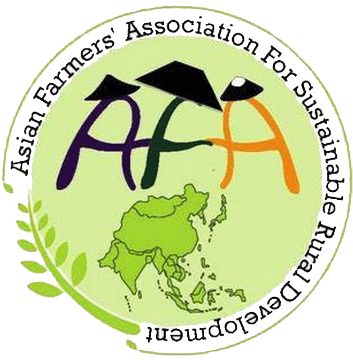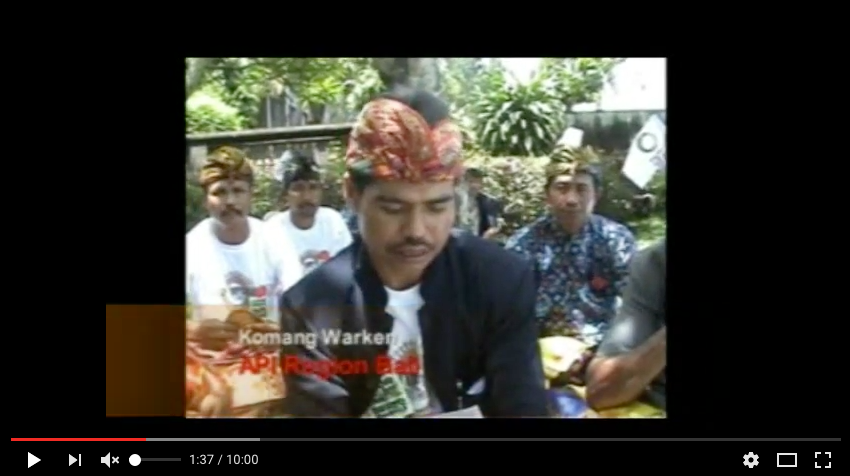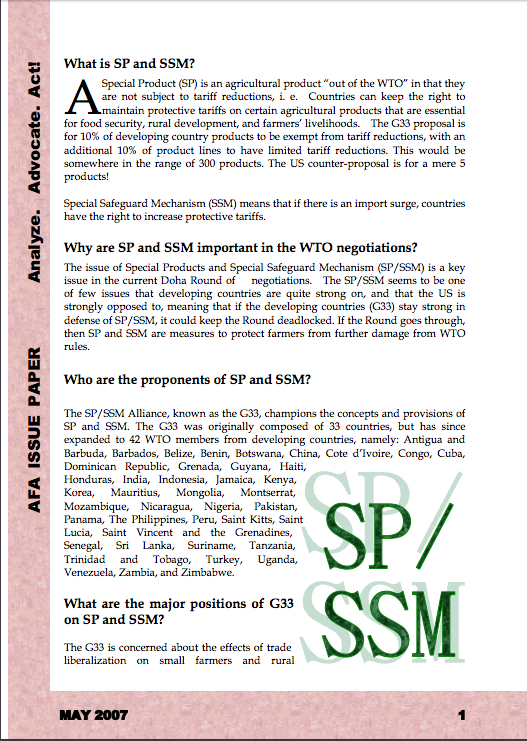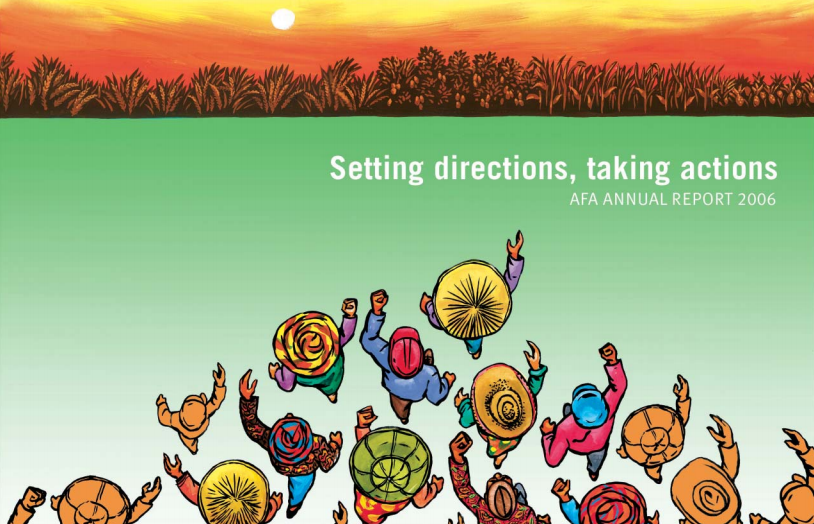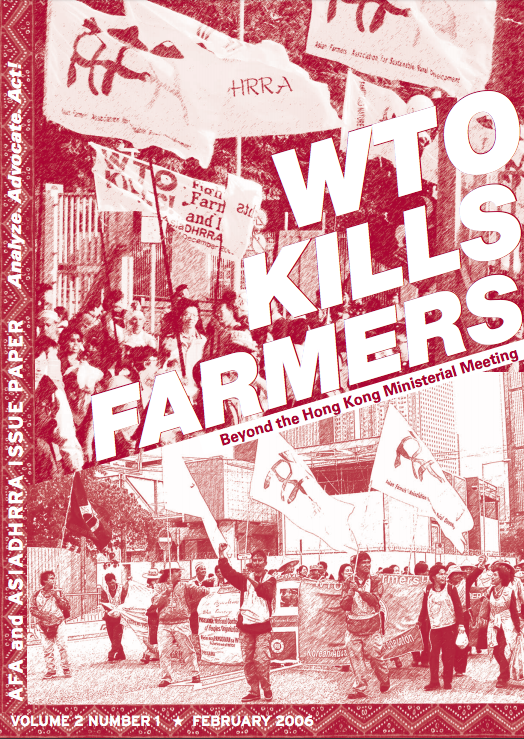We are a regional alliance of 17 national federations and organizations of small scale women and men farmers and producers from 13 countries in Asia.
We were established in 2002 after a series of farmers’ exchange visits (FEVs) organized by our strategic NGO partner, AsiaDHRRA (Asian Partnership for the Development of Human Resources in Rural Asia).
In these five FEVs, conducted over three years, we saw the great need to come, share, learn and act together to-wards our common desire for a better quality of life for ourselves, our families, and our farming communities.
AFA invites national farmers’ organiza-tions as members and works with NGOs in facilitating the formation of national farmers’ organizations and in continuously building their capacities.
It convenes a General Assembly every two years and an Executive Committee meeting every semester.
Our Vision
We envision our rural farming communities as:
- Self-reliant, educated, happy, healthy, peaceful, and prosperous–free from hunger and poverty.
- Having access to and control over our lands, other basic productive resources, goods and services.
- Having access to fair markets for our products.
- Nurturing our farmlands via appro-priate, integrated, and environment-friendly practices and technologies.
- Participating in development processes through politically strong, socially responsive, culturally sensitive and economically viable FOs.
Our Mission
We aim to be:
- A strong and influential voice of small- scale women and men farmers in Asia.
- A strong lobby and advocacy group for farmers’ rights and development, genuine agrarian reform, and main- streaming sustainable agriculture in regional and national policies and programs.
- A facilitator in the trading and marketing of our members’ products.
- A venue for solidarity and exchange of information on agriculture and farmers’ development for our members.
Our Peasant Agenda
Together, we work to:
- Promote sustainable agricultural policies and practices.
- Study and promote alternatives to economic globalization.
- Promote agriculture among the young.
- Promote fair and just treatment of small-scale women and men farmers.
- Promote food sovereignty measures.
- Promote farmer-to-farmer market exchanges.
- Push for provisions on access to farm resources and rural development, and protection of small-scale women and men farmers’ rights in Asian inter-governmental bodies (ASEAN, SAARC, etc)
- Support environmentally-friendly adaptation and mitigation measures for climate change.
- Strengthen AFA at the national and regional levels.
Members:
Resources
Displaying 51 - 55 of 76Global Warming, Global Poverty (Part 1)
A short video documentary of AFA's participation (through its Indonesia member Aliansi Petani Indonesia or API) in activities organized by civil society organizations (CSOs) parallel to the conferences of the UN Framework Convention on Climate Change (UNFCCC or FCCC), such as the thirteenth session of the Conference of the Parties (COP 13) and the third session of the meeting of the parties to the Kyoto Protocol (CMP 3), in Nusa Dua, Bali, Indonesia last December 3-14, 2007. API has been invited by some CSOs who organized the parallel activities to UNFCC.
SP/SSM
A Special Product (SP) is an agricultural product “out of the WTO” in that they are not subject to tariff reductions, i. e. Countries can keep the right to maintain protective tariffs on certain agricultural products that are essential for food security, rural development, and farmers’ livelihoods. The G33 proposal is for 10% of developing country products to be exempt from tariff reductions, with an additional 10% of product lines to have limited tariff reductions. This would be somewhere in the range of 300 products. The US counter-proposal is for a mere 5 products!
SP/SSM
A Special Product (SP) is an agricultural product “out of the WTO” in that they are not subject to tariff reductions, i. e. Countries can keep the right to maintain protective tariffs on certain agricultural products that are essential for food security, rural development, and farmers’ livelihoods. The G33 proposal is for 10% of developing country products to be exempt from tariff reductions, with an additional 10% of product lines to have limited tariff reductions. This would be somewhere in the range of 300 products. The US counter-proposal is for a mere 5 products!
Setting directions, taking actions. Asian Farmers Association Annual Report 2006
Setting directions, taking actions.
Asian Farmers Association Annual Report 2006
WTO Kills Farmers: Beyond the Hong Kong Ministerial
The World Trade Organization (WTO) hailed the recent Hong Kong Sixth Ministerial Meeting last December 2005 as a positive movement towards the conclusion of the Doha Development Round. The round was supposedly geared towards ensuring that trade contributes to the development objectives of least developed and developing countries.

